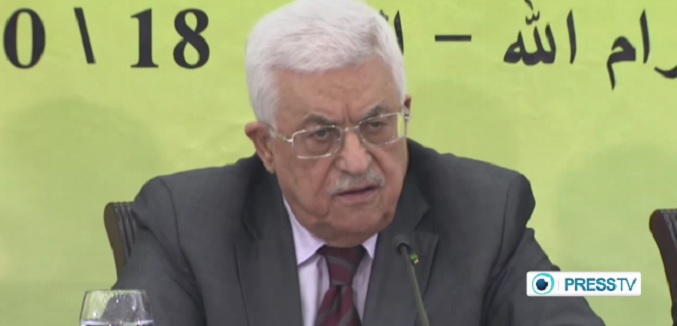The Fatah faction of Palestinian Authority (PA) President Mahmoud Abbas called on Palestinians to stage a “day of rage” in Jerusalem on Friday. Though the day largely passed without incident, observers feared that Abbas’ statement would inflame mass unrest in the Jewish state’s capital, after a Wednesday assassination attempt on prominent Jewish activist Yehuda Glick caused a spike in tensions. The Times of Israel conveyed statements from an official PA news agency, originally translated by the Israel-based Palestinian Media Watch, calling on the Palestinians to act:
“Fatah calls to its fighters and to the masses of the Palestinian people to aid the Al-Aqsa Mosque and occupied Jerusalem.
In an announcement that was published by the Fatah Mobilization and Organization Commission today, the movement called to set tomorrow as a day of rage throughout the homeland and in countries which are home to refugees, to express the Palestinian people’s opposition to any attack on the holy places and foremost among them the Al-Aqsa Mosque… And to consider desecration of Al-Aqsa as a declaration of a religious war against the Palestinian people and the Arab Islamic nations.”
Recent months had seen Israeli-Arab friction steadily increasing in Jerusalem, as top Palestinian leaders – up to and including PA President Mahmoud Abbas and Prime Minister Rami Hamdallah – claimed Israel was seeking to desecrate and destroy Muslim holy sites on the city’s Temple Mount. The area is considered holy by both Jews and Muslims, though the former are forbidden to pray on the site. There is nonetheless a record, stretching back decades (pdf), of Arab and Muslim leaders claiming that Jews are seeking to desecrate and destroy what they refer to as the Noble Sanctuary.Two weeks ago Abbas gave a speech exhorting Palestinians – per a translation published by the Ma’an News Agency – to prevent Jews from entering the area:
Abbas said during a conference in defense of the mosque and Jerusalem in the Red Crescent headquarters in al-Bireh that “without it there will be no state,” official Wafa news agency reported. He called on people to defend al-Aqsa saying, “it’s not enough to say that the setters have come; we must stop them from entering the compound by any means necessary.”
The American-born Glick had long been at the forefront of movements aimed at expanding Jewish rights on the Temple Mount, and eyewitness testimony indicates that he was targeted over his activities. The suspected shooter – Islamic Jihad-affiliated terrorist Muataz Hijazi – had two years ago told a news outlet that he “wish[ed] to be a thorn in the throat of the Zionist plan to Judaize Jerusalem.” Israeli counter-terror forces tracked Hijazi down after the shooting, surrounding the house in which he was holed up and killing him after he opened fire on them.
Authorities in Jerusalem had moved to dampen tensions Thursday morning by among other things temporarily closing the Temple Mount to any worshipers. Palestinian officials blasted the effort. A spokesman for Abbas declared the closure – which applied to all religions, was explicitly temporary, and was aimed at dampening violence in the immediate aftermath of the terrorist attack – to be a “declaration of war” not just against Palestinians but against “the Arab and Islamic nation.”
Israeli officials had reopened the site by Thursday evening. The expectation of mass unrest Friday nonetheless triggered heavy security measures, with more than 1,000 Israeli policy being deployed in and around Jerusalem’s Old City.
[Photo: PressTV / YouTube]




